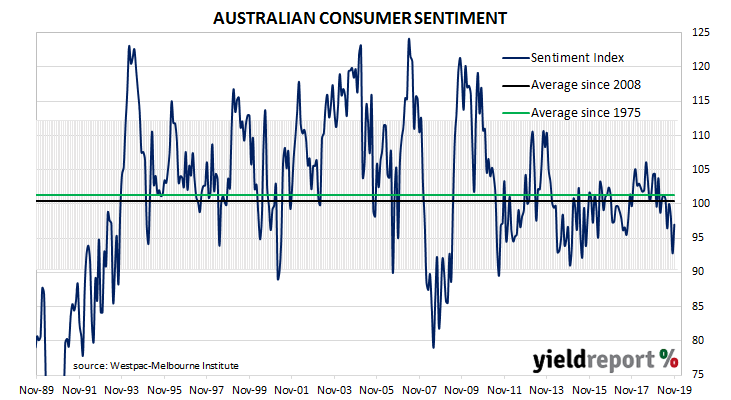After a lengthy divergence between consumer sentiment and business confidence in Australia which began in 2014, the two sectors converged again around July 2018. Since then, confidence has deteriorated and both measures have been around or under neutral levels in recent months. The prospect of reduced international trade and high household debt levels have compelled both the business and household sectors to act cautiously.
According to the latest Westpac-Melbourne Institute survey conducted in early November, average household optimism has recovered back to almost-neutral levels. The Consumer Sentiment Index rebounded from 92.8 to 97.0, almost completely reversing the previous survey’s plunge and recovering back to just a little below the long-term average reading of just over 101. Any reading above 100 indicates the number of consumers who are optimistic is greater than the number of consumers who are pessimistic.
Westpac chief economist Bill Evans said, “The pattern of confidence falling in response to a rate cut and recovering when the RBA remains on hold repeats what we saw earlier in the year…” He said the bounce supported the view households tend to be “somewhat unnerved by the announcement of low rates and media controversy around the banks’ responses.”
The figures came out on the same day as the latest wage price index report but neither one made much of an impact on local Treasury bond yields. By the end of the day, the yield on 3-year ACGBs had lost 2bps to 0.83%, the 10-year yield had slipped 1bp to 1.28% while the 20-year yield finished unchanged at 1.69%.

